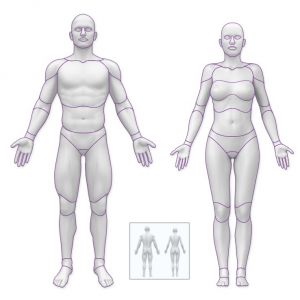Forearm Conditions
Forearm Conditions
Forearm Conditions
Conditions affecting the forearm
Forearm Conditions
Achalasia
Symptoms Include:
Difficulty swallowing | Regurgitate | Cough | Heartburn
Difficulty swallowing | Regurgitate | Cough | Heartburn
Achalasia is a rare gastrointestinal condition (oesophagus). It may be difficult to swallow meals and liquids as a result of this. Achalasia symptoms might appear at any stage in one’s life (see symptoms section). You will be referred to the hospital for tests if your doctor suspects you have achalasia.
Joint pain
Joint pain is a frequent condition that can have a variety of causes. However, it’s frequently due to an injury or arthritis. Joint discomfort that worsens over time is frequently a marker of osteoarthritis in elderly adults. If you have persistent osteoarthritis symptoms, see a doctor.
Related Conditions:
Osteoarthritis
Symptoms Include:
Pain | Swelling | Grinding joint
Pain | Swelling | Grinding joint
Osteoarthritis is a disorder that causes painful and stiff joints. In Northern Ireland, it’s one of the most frequent kinds of arthritis. It can affect anyone, but it is more prevalent in the elderly. If you experience persistent osteoarthritis symptoms, you should consult a doctor.
Related Conditions:
Ringworm
Symptoms Include:
Rash
Rash
Ringworm is a common fungal illness that causes a ring-like rash on the skin that can be either red or silvery. Ringworm is most usually found on the arms and legs, but it can arise on any part of the body. Ringworm, despite its name, has nothing to do with worms.
Sports injuries
Although the advantages of sports and exercise much exceed the hazards, accidents can occur from time to time.
Related Conditions:
Sprains and strains
Sprains and strains
Symptoms Include:
Pain | Swelling | Bruising | Reduced movement
Pain | Swelling | Bruising | Reduced movement
Sprains and strains of the muscles and ligaments are common injuries. They can affect anyone, but they are more common in athletes. The majority of illnesses can be treated at home without the need to see a doctor.
Tendonitis
Symptoms Include:
Pain | Reduced movement | Cracking | Swelling
Pain | Reduced movement | Cracking | Swelling
Tendonitis (tendonitis, for example) occurs when a tendon swells up and becomes painful as a result of a tendon injury. Mild tendon injuries can be treated at home, and you should feel better in 2 to 3 weeks.
Related Conditions:
Sprains and strains


